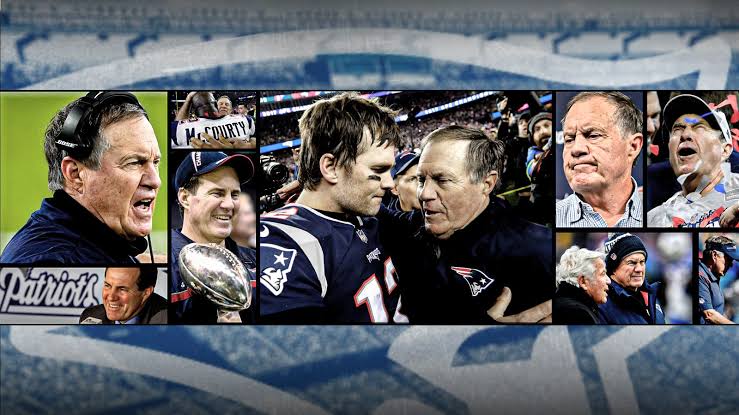The End of an Empire: What Bill Belichick’s Departure Really Means for the Patriots — And the NFL
In a historic move that officially closes a chapter of NFL dominance, the New England Patriots and legendary head coach Bill Belichick have mutually parted ways after 24 seasons, signaling the end of what is widely considered the greatest dynasty in football history.
Belichick’s tenure wasn’t just about wins—it was about redefining what success looks like in a league designed for parity. With 266 wins, six Super Bowl championships, 17 AFC East titles, and nine Super Bowl appearances, Belichick built more than a team—he built an empire.
A Dynasty Like No Other
Since taking over in 2000, Belichick transformed a relatively average franchise into a model of sustained excellence. The Patriots became a symbol of discipline, preparation, and cold-blooded execution. Their reign included an unprecedented stretch of 17 division titles in 19 years, a feat unmatched in the salary cap era.
Much of that success, of course, came with quarterback Tom Brady, who shared in the glory. But even after Brady’s departure in 2020, Belichick remained the face of the Patriots—a mastermind known for his hoodie, his brevity, and his unmatched football intellect.
What Led to the Breakup?
While Belichick’s brilliance is undisputed, recent seasons showed signs of decline. Since Brady left, the Patriots went 25–25 in three full seasons and failed to win a playoff game. The offense struggled with identity, and the 2023 season ended with a disappointing 4–13 record—New England’s worst under Belichick.
Internal reports point to philosophical disagreements between Belichick and team owner Robert Kraft, particularly regarding roster construction and the quarterback position. While the split was framed as mutual, many believe it was time.
Still, Kraft acknowledged the moment’s gravity:
“No one in NFL history has accomplished what Bill Belichick has with this franchise. He will forever be a part of our legacy.”
A Ripple Effect on the League
The news doesn’t just impact Foxborough—it shakes the NFL landscape. Belichick is expected to be a top coaching candidate for other teams, including franchises like the Chargers, Falcons, and Commanders.
Meanwhile, the Patriots are left at a crossroads. Will they promote internally, perhaps with Jerod Mayo? Or will they look externally to reboot the dynasty?
The Patriots fanbase, spoiled by two decades of greatness, now faces the unfamiliar: uncertainty.
What’s Next for Belichick?
At 72, Belichick insists he’s not done. With 333 total wins, he’s just 15 behind Don Shula’s all-time record of 347. That target could serve as motivation for one final chapter—perhaps with a team in win-now mode.
His legacy, however, is already cemented. He’s not just the most decorated coach of the Super Bowl era; he’s the blueprint for modern coaching.
Legacy Beyond the Numbers
Belichick’s influence goes far beyond wins and rings. He mentored dozens of future head coaches and coordinators. His strategies, from game-plan-specific defenses to situational football, became gospel. His players revered—and feared—his expectations.
And in a sport where coaches come and go, Belichick endured. Through rule changes, player movement, and publ
ic criticism, he stayed the course.






















